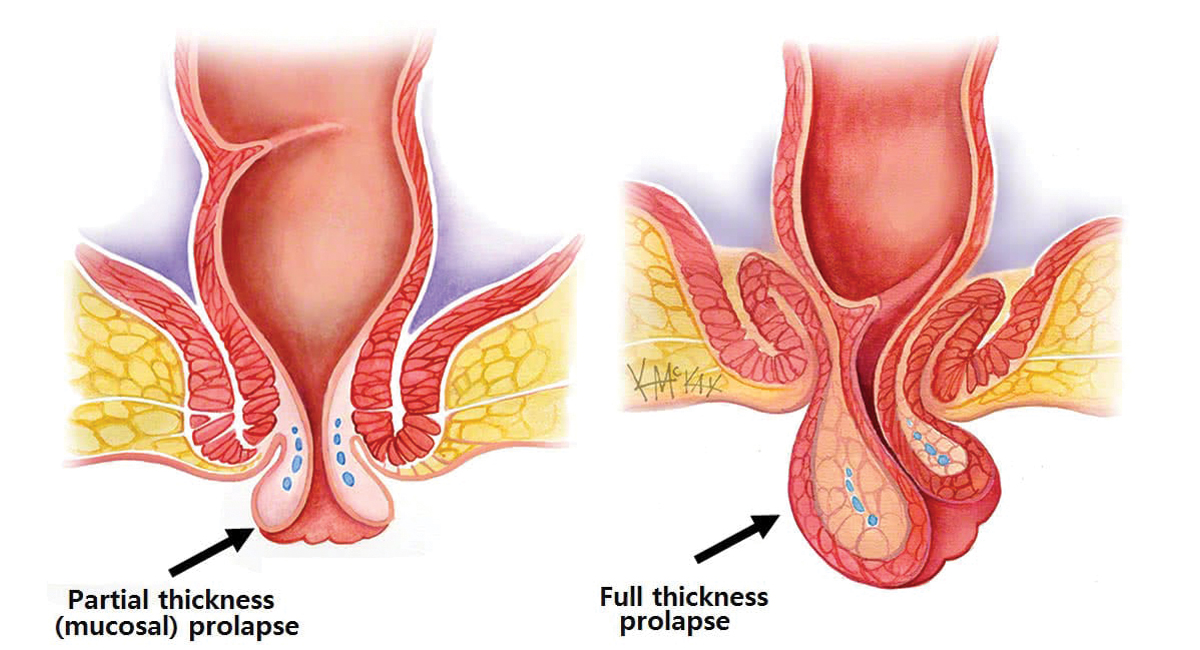
Introduction
Although the symptoms may not always be evident, piles are a common medical condition that occurs in many people. Several effective treatment options are available for piles, and most people get relief from symptoms with lifestyle changes and home remedies.
What is Rectal Prolapse?
The rectum is the lowermost part of the large intestine. It eliminates digestive waste through the muscular opening of the digestive system called the anus. Rectal prolapse occurs when the rectum slips out of the anus. Smiles Gastroenterology has rectal prolapse treatment doctors in Bangalore, who provide the best treatment that works for you best.
Based on the degree of prolapse, it may be classified into:
- ● Internal prolapse: The rectum begins to slip but doesn’t distend across the anus yet.
- ● Partial prolapse: Part of the rectum prolapses through the anus.
- ● Complete prolapse: Rectum completely extends out of the anus.
Request an Appointment at Smiles
What Causes Rectal Prolapse?
- ● Chronic constipation leads to straining during bowel movements. Over more extended periods, straining can push the rectum down towards the anus to cause a prolapse.
- ● With aging, the muscle and ligaments supporting the rectum weaken, resulting in prolapse.
- ● The weakening of the anal sphincter. The anal sphincter controls the elimination of stool through the anus. Weak sphincter muscles can also cause the portions of the rectum to slip through.
- ● Previous injury to the anus or pelvic floor.
- ● Nerve Damage. If the nerves connecting to the rectal and anal muscles are damaged, it could result in rectal prolapse. Nerve damage may be caused by pregnancy, difficult vaginal childbirth or spinal injuries.
- ● Rectal prolapse can result from other medical conditions such as hysterectomy, previous colorectal surgeries, abdominal surgeries, diabetes, and infections in the intestines.
What Are the Symptoms of Rectal Prolapse?
As the prolapse worsens, you may experience bleeding from your rectum.
Episodes of constipation and bowel incontinence are prevalent in most people with rectal prolapse. Bowel incontinence means difficulty in controlling stools: liquid and solid. You may also experience gas escaping from your bowels frequently due to incontinence.
How is Rectal Prolapse Diagnosed?
Your doctor may also advise a colonoscopy to rule out other medical conditions like polyps or colorectal cancer.
How is Rectal Prolapse Treated?
Surgery involves two primary approaches: abdominal or through the anus. Your surgeon will choose the method based on your health status.
- ● Laparoscopic Surgery for Rectal Prolapse : The surgery involves smaller incisions through which the surgeon inserts surgical instruments and a camera to pull the rectum back to its original place.
- ● Abdominal Approach for Rectal Prolapse Repair : Rectal prolapse repair through large incisions in the abdomen requires a mesh sling insertion to anchor the rectum. If you have a history of constipation, removing a part of the colon during the surgery can help with your complaints.
- ● Perineal Rectosigmoidectomy This surgery involves the repair of the prolapse through the anus. The surgeon will remove the prolapsed part of the rectum via the anus. They will then pull back the remaining portion of the rectum and attach it to the intestine. The approach is beneficial for people who are unable to undergo laparoscopic or abdominal surgery.
What Are the Results?
-
- Following the surgery, you will be on a special diet consisting of soft foods and liquids. You may also need to take stool softeners in the initial period following surgery to prevent constipation. Straining during bowel movements can hamper the healing process.
-
- Although the healing process after the surgery depends on individual factors like underlying health status, you may require around 6-8 weeks for complete recovery.
What Are the Risks of Surgery?
- ● Internal bleeding
- ● Bowel obstruction
- ● Injury to surrounding structures – organs and blood vessels
- ● Anal narrowing
- ● Site Infection
- ● Fistula — an abnormal connection between two body parts, such as the rectum and vagina
- ● Recurrent prolapse
Request an Appointment at Smiles
FAQ's
How does Rectal Prolapse Look?
Can Rectal Prolapse Heal Itself?
Can you Defecate with a Rectal Prolapse?
What Happens if the Prolapsed Rectum is left Untreated?
How do I know if my Rectal Prolapse is Severe?
Need Help?
For any Information about our Locations, Doctors or Treatments.
